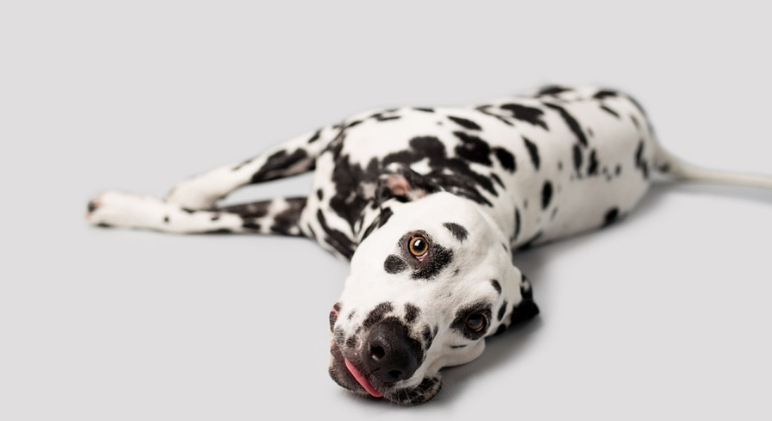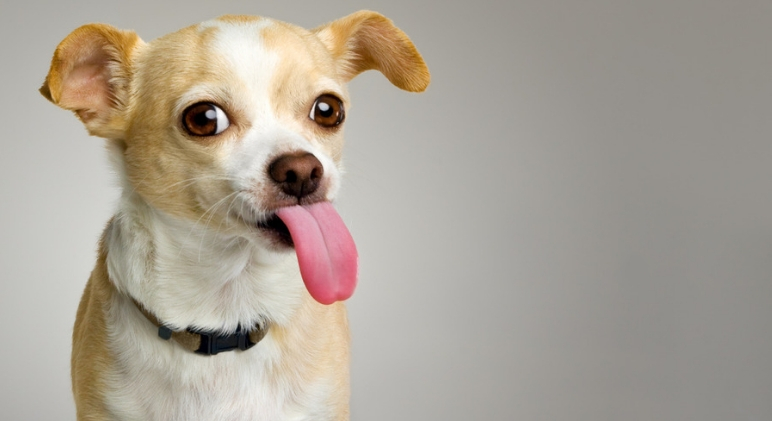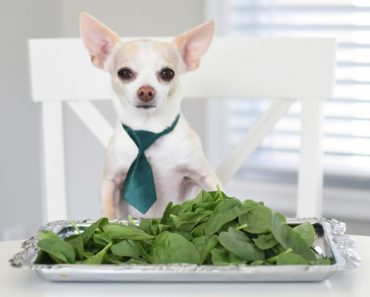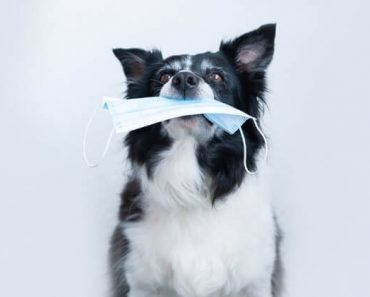Our dogs often do interesting (and admittedly entertaining) things that make us ask the question: Why?! And a dog sitting there randomly licking the air — as if there is peanut butter on his tongue — is no exception. But, while the sight can sometimes make us giggle, air licking isn’t something that should go ignored. Read on for five common reasons dogs lick the air!
1. There’s Something Stuck In His Mouth
While this is perhaps the most obvious reason, it’s still worth noting. If you notice your dog licking the air shortly after he finishes gnawing on a bone or nibbling on a treat, check his mouth to make sure nothing is stuck in between his teeth.
This actually happened to Diego a few years ago when my neighbor gave him a sweet potato chew. A little piece of the sticky treat got stuck between his teeth. I witnessed a clear look of panic come across his face. He was licking like crazy and pawing at his mouth. One peek inside and I noticed the bright orange culprit!
Even if you didn’t see your dog eat anything, if you notice random air licking then it’s still worth checking inside your pup’s mouth to see if anything is in there. Dogs are curious creatures and, just like a toddler, will put just about anything in his mouth!

2. Dental Issues
How are your dog’s teeth? Are they covered in plaque and tarter? Have you noticed a stinky odor coming from Fido’s mouth? Along with these obvious signs of poor oral health, dogs suffering from dental pain may also begin excessively lick the air as a way to self soothe. Sure, daily teeth brushing is important. But, if your dog is showing signs of extreme discomfort then it’s time to schedule an oral exam with your veterinarian.
3. Nausea & Gastrointestinal Issues
There’s a medical term for dogs who excessively lick the air and other surfaces. It’s called “Excessive Licking of Surfaces” (ELS). According to PetMD, about 60% of dogs who exhibit ELS have an underlying gastrointestinal problem. And veterinarian Dr. Karen Becker quotes a small study where that statistic is even higher:
“A small 2012 study of dogs with ELS showed that 74 percent (14 of 19) had some type of GI disease, including eosinophilic and/or lymphoplasmacytic infiltration of the GI tract, delayed gastric emptying, irritable bowel syndrome, chronic pancreatitis, gastric foreign body and giardiasis.”
Whatever the exact statistic is, one thing is clear: Excessive air licking has been linked to tummy troubles in dogs and seems to be a way dogs cope with nausea. So, if you notice your pup licking and can’t seem to figure out the exact cause, it’s worth scheduling a vet appointment to get your fur kid checked.

4. Stress & Anxiety
Animal behaviorists recommend observing what’s going on around your dog when the air licking takes place. If it happens during a more stressful situation (e.g. in the car, visiting a new place, lots of people are around, loud noises) then it may be the result of stress. Canine Psychologist Stanley Coren was quoted saying:
“I frequently see this kind of lip licking or air licking on the first day of a beginner’s dog obedience class. The dogs are often stressed because their handlers are a bit nervous, the surroundings are strange and there are unfamiliar dogs in the room. As the classes proceed, however, the room, the situation and the other dogs all become familiar, and the licking behavior quickly disappears.”
So why would licking help calm a dog in a stressful situation? Well, when a dog licks, endorphins are released into their brain, and these feel-good chemicals are self-soothing to the dog! There are even research studies that back up this claim.
5. Compulsive Behavior
If you notice your dog frequently licking the air for hours at a time then he may have actually developed a compulsive disorder. If the problem persists, consider consulting with both your veterinarian and an animal behaviorist. In the meantime, don’t punish your dog over the repetitive behavior. Instead, train an alternative behavior. Plus, try increasing your dog’s daily exercise routine and mental stimulation.








